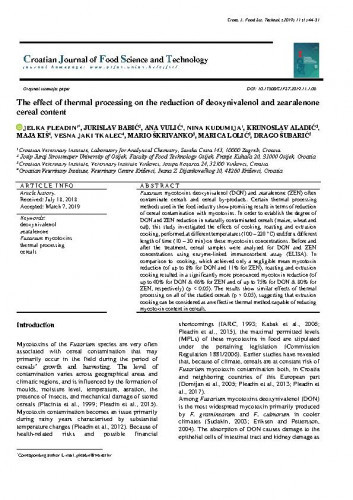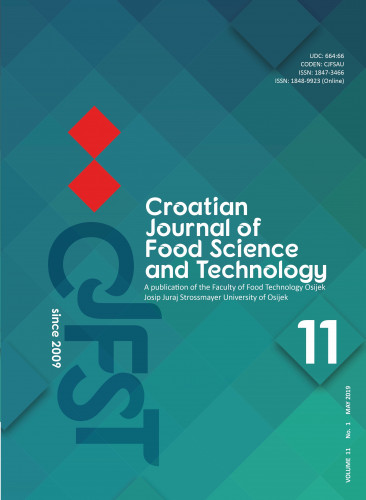Fusarium mycotoxins deoxynivalenol (DON) and zearalenone (ZEN) often contaminate cereals and cereal by-products. Certain thermal processing methods used in the food industry show promising results in terms of reduction of cereal contamination with mycotoxins. In order to establish the degree of DON and ZEN reduction in naturally contaminated cereals (maize, wheat and oat), this study investigated the effects of cooking, roasting and extrusion cooking, performed at different temperatures (100 – 220 °C) and for a different length of time (10 – 30 min) on these mycotoxins concentrations. Before and after the treatment, cereal samples were analysed for DON and ZEN concentrations using enzyme-linked immunosorbent assay (ELISA). In comparison to cooking, which achieved only a negligible mean mycotoxin reduction (of up to 8% for DON and 11% for ZEN), roasting and extrusion cooking resulted in a significantly more pronounced mycotoxin reduction (of up to 40% for DON & 46% for ZEN and of up to 75% for DON & 80% for ZEN, respectively) (p <0.05). The results show similar effects of thermal processing on all of the studied cereals (p >0.05), suggesting that extrusion cooking can be considered as an effective thermal method capable of reducing mycotoxin content in cereals.
Sažetak

 Croatian journal of food science and technology : a publication of the Faculty of Food Technology Osijek : 11,1(2019) / editor-in-chief Jurislav Babić.
Croatian journal of food science and technology : a publication of the Faculty of Food Technology Osijek : 11,1(2019) / editor-in-chief Jurislav Babić.